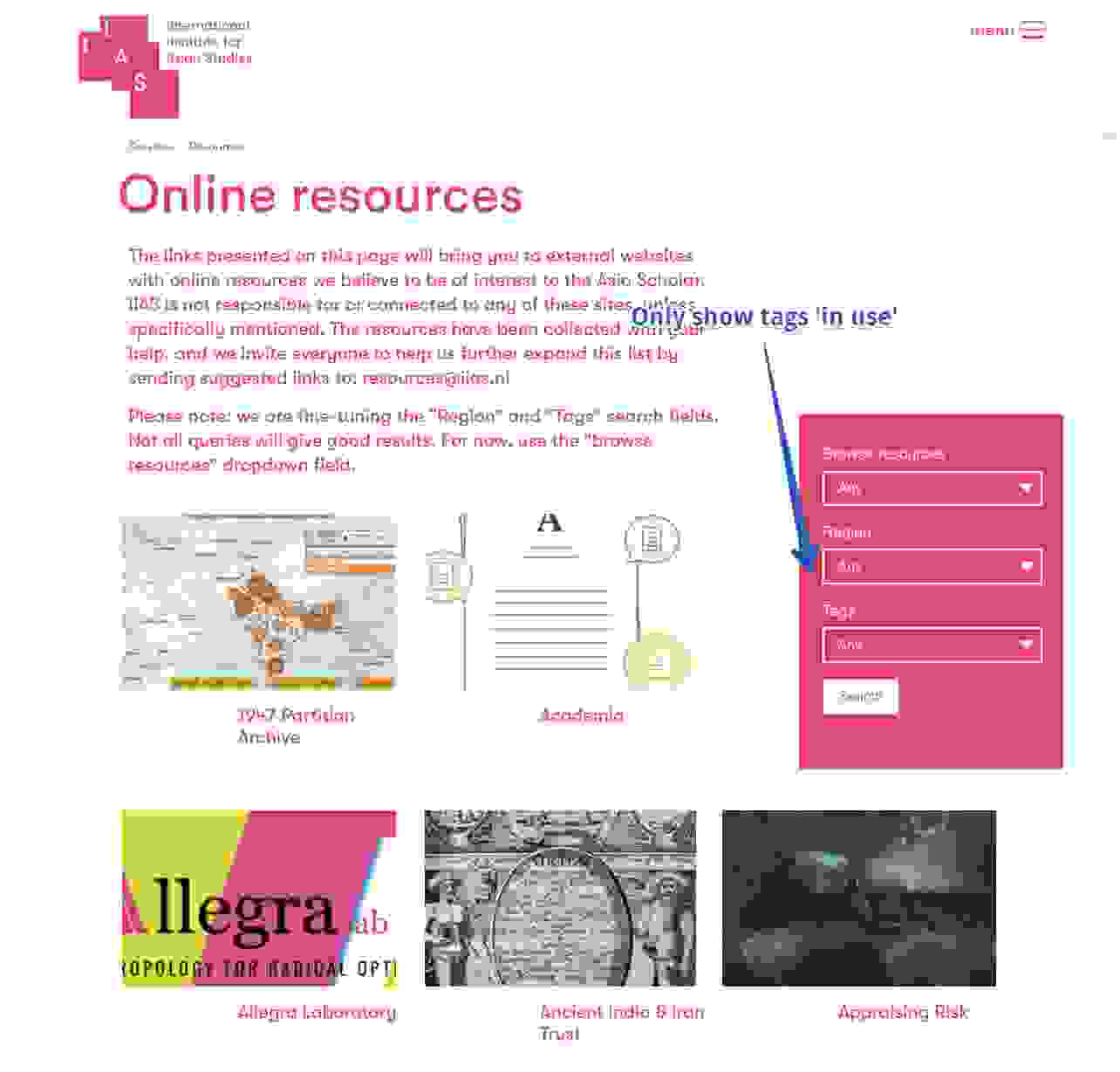I would like to stay up to date on all available open source / 'contrib' Drupal modules. 'There is a module for that', this applies to many use cases within Drupal; a deadly sin to build something that already exists, or is partially available. We keep track of the latest module releases every month, including what we noticed about module updates in the past month:
1. Clientside Validation
The Form API from Drupal is very comprehensive: neatly building, formatting and developing forms, in the broadest sense of the word, are interwoven into the system. There is no clientside validation as standard, simply put: that as soon as a visitor enters a 'form element' (for example his first name), that field is immediately validated. And not just after clicking on the 'Save' button.
https://www.drupal.org/project/clientside_validation
2. Forms Steps
Giving enough attention to forms on your website is essential; these are often a conversion point and you want nothing to stand in the way. A multi-step form can increase your conversion rate by 300%. With this module you can easily create such a form in Drupal.
https://www.drupal.org/project/forms_steps
3. Better Search Block
You can make the standard Drupal search box beautiful by overriding using Twig templates. But if you want a less technical approach, this module could help: it offers some configuration options such as:
- Making some layout elements adjustable
- Making the placeholder text adjustable
- Mini animations as soon as a visitor clicks in the box.
https://www.drupal.org/project/better_search
4. Multiple Registration
A powerful permissions and roles system is embedded in the Drupal core, but offers only one registration page for website visitors as standard. If you want different registration pages on your website, for different roles (for example, customers and suppliers), give this module a try.
https://www.drupal.org/project/multiple_registration
5. Simple XML sitemap
An XML sitemap is essential for your website SEO. There are several Drupal modules that generate this XML sitemap for you, but this one seems to be the most popular with nearly 45,000 installs. This also supports the latest Google standards, regarding multilingual content. Googlebots will thank you later.
https://www.drupal.org/project/simple_sitemap
6. Advanced Text Formatter
Within the Drupal core you can set according to which View mode an entered text field can be shown to the website visitor, for example 'default', 'teaser' or 'trimmed'. If you want more control over the way in which the entered text is displayed, install this module so that you can configure by field:
- Automatically cut text on a certain number of characters.
- Adding an ellipsis (...) as soon as a sentence is truncated.
- Always cancel on whole word.
- Tokens for adding automatically dynamic information.
- Allow certain html tags.
- Apply specific Text Format.
https://www.drupal.org/project/advanced_text_formatter
7. Menu Item Extras
Do you want to add extra fields to menu items? Install this popular module. You can see it as 'Fieldable menus', so you can store and display all kinds of extra information with a menu item.
https://www.drupal.org/project/menu_item_extras
8. Visitors
Don't want to give away all your data to Google? Or do you run Drupal as a social intranet with private data? Then you can install this module to generate statistics. It gives reports about the visitors to your website, in diagrams and other textual statistics. Some of the available reports:
- Pages that have recently been visited
- Pages that are often visited
- Page visitors per month / week / day
- Total number of visitors
- Number of unique visitors
- Number of registered users
- Visitors by country, city
- Number of visits per page per city
For the complete list, check the module page:
https://www.drupal.org/project/visitors
9. Geofield Map
Easily create beautiful maps using this Drupal module, it is built on the popular Geofield module and works in both the frontend and the backend with interactive maps makes management easy for content managers. The 2.x version even supports custom markers and images, based on dynamic data from that folder. Watch a live demo here.
https://www.drupal.org/project/geofield_map
10. Views Bulk Operations (VBO)
https://www.drupal.org/project/views_bulk_operations
This module has been around for a long time, but recently received another update. Using Views you can configure Drupal content lists in the broadest sense of the word: you can make a list of basically everything that lives in Drupal with it - from simple blog overviews to complex search pages with facets integrated in Solr.
This module expands Views with the possibility of having an action on all items in such a list: a 'bulk operation' as an extension of this limited function of the Drupal core.
An example is bulk editing of a selection of nodes. Exporting data to excel or csv is also possible via this additional module.
11. Monolog
Drupal core has a good log, in which you can find notifications, warnings and errors. But sometimes you need more reporting: this module offers integration of the Monolog library- "Logging for PHP". It integrates with Drupal Watchdog: the core log, so the module works with the Drupal core and contrib / open source modules.
https://www.drupal.org/project/monolog
12. Field Defaults
You can configure your content model in Drupal using content types and fields. After / during this configuration you build your website, after which you will fill it with content. Sometimes the content manager discovers after a while that an extra field is needed (for example an 'Intro Text'). You can easily add that field in Drupal, but with all existing content items that field is empty. This module comes in handy: as soon as you create a new field, it can automatically supplement all existing content with a chosen default value for that field.
https://www.drupal.org/project/field_defaults
13. Allow site iframing
For security reasons a website may not load within an i-frame, the Drupal core prohibits that by default. If you want to bypass this intentionally, this mini module offers the solution.
https://www.drupal.org/project/allow_iframed_site
14. Upgrade Status
A module mentioned in the Drupal Keynote by leader Dries Buytaert in the past DrupalCon. Specific for Drupal 8 installations: this module scans all code and reports whether it contains 'deprecated code'. Simply put, that is code that no longer works in Drupal 9. To make it easy to upgrade to Drupal 9 at a later stage, it is important not to have a deprecated code anymore, this module provides a good insight into that. Also: if you use the correct IDE, it will immediately indicate inline with the code.

View this directly in the Driesnote
https://www.drupal.org/project/upgrade_status
15. Views Bulk Edit
An addition to the Views Bulk Operations module: provides bulk updating of 'entity values': for example, filled-in text fields in content item, or categorization using Taxonomy
https://www.drupal.org/project/views_bulk_edit
16. Mobile Device Detection
Nowadays the responsive layout of your website is determined in the frontend: the html / css / js determines what it will look like on a certain screen format and also determines whether certain blocks are visible or not.
If you want to catch this on the basis of the website visitor's device, then take a look at this module. Depending on the device, you may or may not have certain Drupal blocks displayed to the website visitor, based on the device.
https://www.drupal.org/project/mobile_device_detection
17. Quick Link
Traced as a result of this blog: this module offers an implementation of the Quicklink library from Google Chrome Lab for Drupal. Quicklink is a lightweight JavaScript library (compressed less than 1 kb) that enables faster consecutive page loads by following in-viewport links.
How Quicklink works Quicklink makes attempts to speed up navigation to subsequent pages. It:
- Detects links within the viewport (using Intersection Observer)
- Wait until the browser is inactive (with requestIdleCallback)
- Checks whether the user has a slow connection.
- Prefix of URLs to the links (using or XHR).
Under construction The module has just been released and is currently under heavy construction, but absolutely one to watch.
https://www.drupal.org/project/quicklink
18. Freelinking
A 'looser' way for content managers to create links. By default you must enter a 'hard' link to a page, but after installing this Drupal module you can also use, for example, the page title, in which case you enter: [[nodetitle: Title of the Page]].
This module automatically turns this into a working link.
https://www.drupal.org/project/freelinking
19. Hook Event Dispatcher
There are several articles about why you have Drupal events or Drupal hooks They are both in Drupal 8, hooks are from the legacy era (Drupal 7 and earlier) and events originate from the Symfony framework which Drupal 8 is built on. The creator of this module believes that the hook system is outdated, but that is an ongoing discussion.
Anyway, this module ensures that Drupal dispatches some hooks as events, so that those hooks can be implemented as events. Because that way of implementation would be better. Among other things, it is about:
- Entity hooks
- Form hooks
- Preprocess hooks
https://www.drupal.org/project/hook_event_dispatcher
20. Modules weight
Drupal executes code in modules on order of weights of modules. The module with the highest or lowest weight is executed first. As a result, it is possible that a certain code can overwrite each other because they have the same type of application. It is not possible to set which code has priority, so with the help of setting the module weight.
In the 'early Drupal 7 days' we did this by hand: directly adjust the values of the weights in the database, now there is a module for which you can simply configure this, nice:
https://www.drupal.org/project/modules_weight
Wrap up
That's it, for this month then. Hopefully you are well informed about the latest module releases and you will care a lot because 'there is a module for that'. For another xx cool Drupal modules - stay tuned next month!





